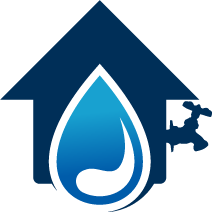Selecting the Right Water Heater: Factors to Consider for Optimal Performance
ShareChoosing the appropriate water heater for your residence is a vital choice that affects both your comfort and utility expenses. A water heater is an unseen workhorse, providing hot water for showers, dishwashing, laundry, and more. To ensure optimal performance and energy efficiency, several key factors must be considered. This article will guide homeowners through the process of choosing a water heater that meets their needs, highlighting the considerations that contribute to a wise investment and enhanced home comfort.
Understanding Different Types of Water Heaters
There are various types of water heaters available in the market, each with its unique advantages. Traditional tank water heaters are widely used to store and heat water in a large tank. Conversely, tankless water heaters also referred to as on-demand water heaters, supply hot water on an as-needed basis, resulting in potential energy savings. Hybrid models combine features of both tank and tankless technologies, and solar water heaters use the sun's energy to heat water, offering significant energy savings.
Size and Capacity Needs
Determining the right size for a water heater is essential to meet household hot water demands without wasting energy. A system that's too large will result in unnecessary energy expenditure, while one that's too small might leave you with cold showers. Consider the number of inhabitants, peak usage, and simultaneous appliance use when deciding on water heater capacity.
Energy Efficiency and Environmental Impact
Energy efficiency is not only beneficial for reducing monthly bills but also for the environment. When searching for water heaters, prioritize those with high energy factor (EF) ratings. These ratings reflect the unit's efficiency in converting fuel into hot water. Additionally, choosing an energy-efficient model may qualify homeowners for tax credits or utility rebates, enhancing savings.
Fuel Type and Availability
The fuel source for a water heater can significantly affect operating costs and performance. Common fuel options include electricity, natural gas, propane, and solar. Availability and local fuel costs play a crucial role in the selection process, and homeowners should compare the long-term costs associated with different fuel types.
Longevity and Maintenance
A water heater is an investment expected to last for years. The durability and maintenance requirements of the unit are important considerations. Some materials resist corrosion better, and features like easy-to-replace anode rods can extend the lifespan of the water heater. Routine maintenance can help detect and prevent issues before they become significant problems.
Considering Cost and Rebates
While the initial purchase price is an important factor, homeowners should also consider the long-term operating costs of a water heater. More efficient water heaters might have a higher upfront cost but result in greater savings over time. Additionally, look into available rebates and incentives that can offset the initial expense.
For more info, contact a local company like C & C Mechanical Plumbing & Drain Cleaning.

